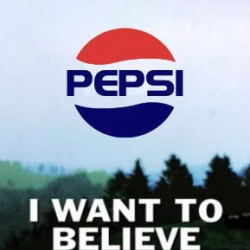Parker Molloy, “What Cracker Barrel can tell us about culture war”
You hear that, everyone? Offering a vegetarian option is “wokeness,” or something, and that might necessitate a a boycott because… I don’t know, reasons. It’s not as though plant-based meat substitutes are replacing anything. It’s not as though they have a strong smell or something else that would ruin your dining experience if you just happened to be sitting near someone else eating it. It’s simply an option that Cracker Barrel is offering because there is apparently enough of a demand for it that it makes sense to stock. These people are angry that other people might choose to eat something they personally would not. It’s that simple. And this is the common thread in a lot of the “wokeness” discourse that happens on the right and in the center.
William J. Barber III and Jonathan Wilson-Hartgrove, “Republicans Opposing Student-Loan Relief Are Forgetting the Biblical Tradition of Debt Forgiveness”
As Christian pastors, we know that the false promise of a “Christian nation” has persuaded millions of Americans to support policies that hurt God’s people. In a multi-faith democracy, we don’t need our faith to be privileged by state power. But every faith can and should inform our vision for our common life. The tradition of debt forgiveness, which is shared by Christians, Jews, and Muslims alike, offers a powerful vision for a way forward from the historic inequality that currently harms our economy. It’s no surprise that defenders of the wealthy elite are crying “socialism.” Their forebears attacked New Deal and Great Society programs along the same lines. But moral movements throughout our nation’s history have made the case that moral policies that lift from the bottom are good for all of us.
Jay Caspian Kang, “41-year-old Adoptee Deported After 37 Years in the U.S.“
Jason Wilson and Aaron Flanagan, “The Racist ‘Great Replacement’ Conspiracy Theory Explained”
In some periods of American history, paranoid narratives of “white extinction” have appeared to exist only on a radical fringe of racist political movements. In other periods, some of the nation’s highest political officeholders have repeated these ideas, leading to forced sterilization programs at the state level and a racial quota system becoming federal immigration law for four decades. No longer on the fringe, such narratives now have currency among some of the most powerful and influential actors in right-wing media and politics.
The “great replacement” theory is inherently white supremacist. It depends on stoking fears that a non-white population, which the theory’s proponents characterize as “inferior,” will displace a white majority. It is also antisemitic. Some proponents of the “great replacement” do not explicitly attribute the plot to Jews. Instead, they blame powerful Jewish individuals such as financier and philanthropist George Soros or use coded antisemitic language to identify shadowy “elites” or “globalists.”
Dahlia Lithwick, “John Roberts Can’t Admit What’s Happened to the Supreme Court”
Roberts knows better than to suggest that the court’s problem this past term was simply a matter of “people disagreeing with a decision.” The court was handed to wealthy secret donors because of his own jurisprudence. And the court’s problem is now that it happened in plain sight. With all due respect, it is not that the public didn’t like the final score at the end of the term when the lights went out in June. The problem wasn’t just the losses; the problem was that his team moved the game to another field, then stole the ball and replaced it with a time bomb, then changed the rules, then lied about it, and then set the entire field ablaze. Now he wants everyone to shake hands and go home. The public is not so inclined. He is far too smart to believe we are all this stupid, which suggests to me that he knows we are right.
Patrick Freyne in The Irish Times
Having a monarchy next door is a little like having a neighbour who’s really into clowns and has daubed their house with clown murals, displays clown dolls in each window and has an insatiable desire to hear about and discuss clown-related news stories. More specifically, for the Irish, it’s like having a neighbour who’s really into clowns and, also, your grandfather was murdered by a clown.
















